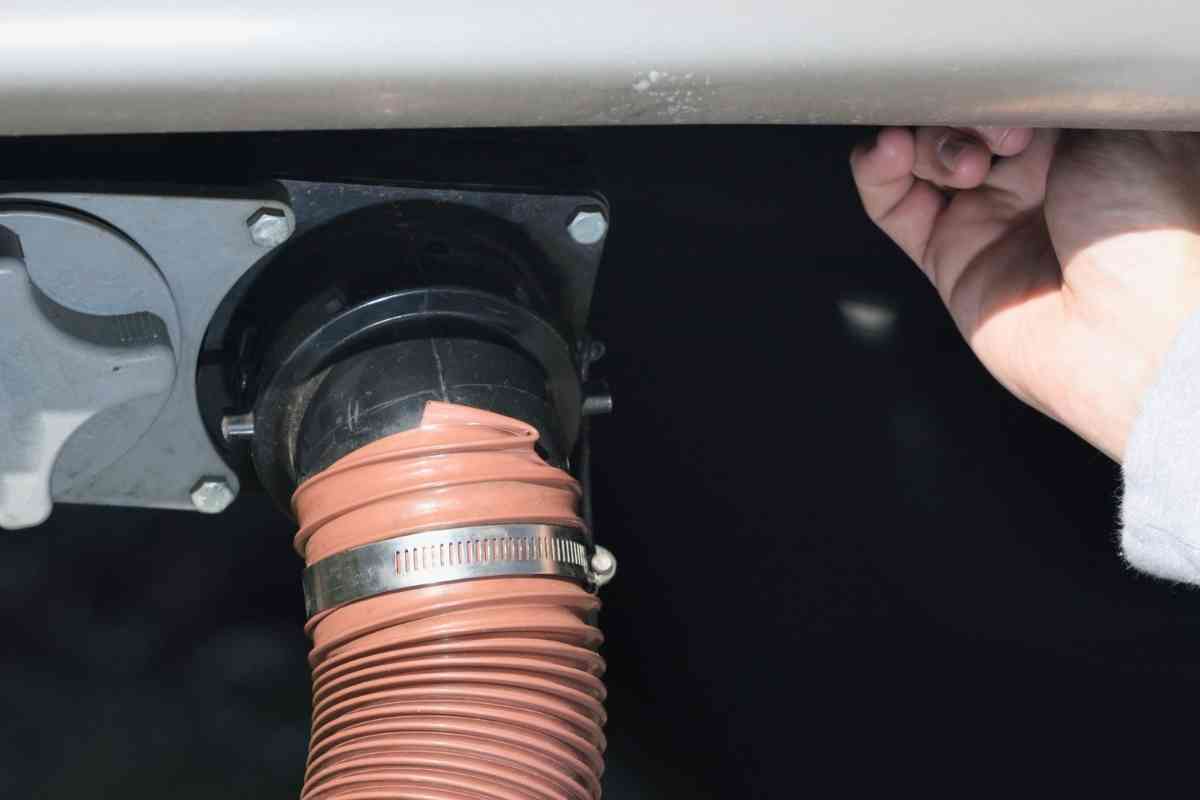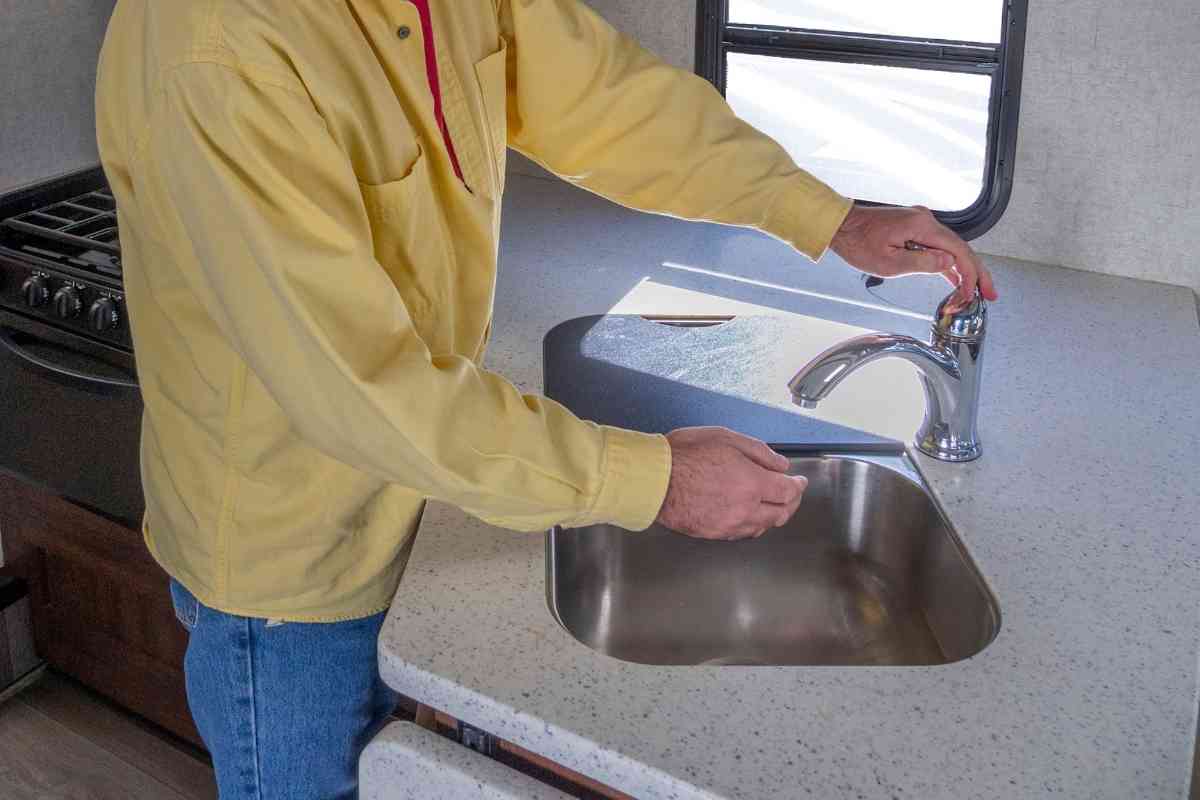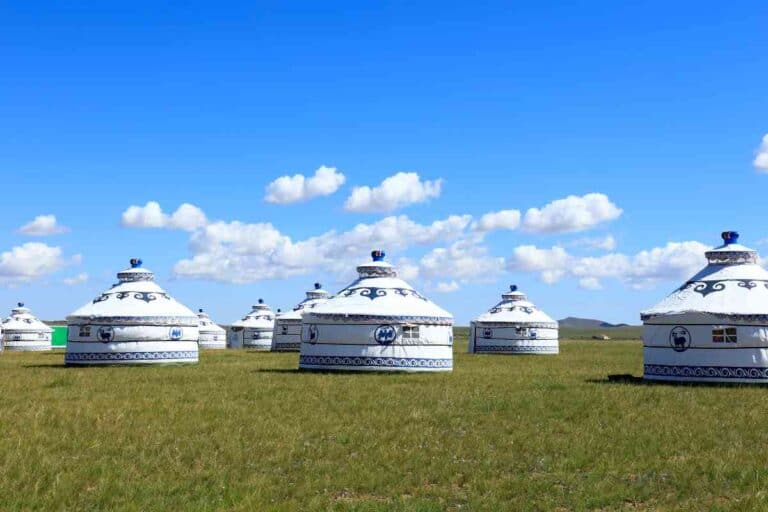How To Stop Your Grey Water Tank From Smelling In 4 Easy Steps
If you have an RV and are noticing your grey water tank is smelling, then it can ruin your whole trip, so it is important to know how to resolve the issue. Knowing how to stop your grey water tank from smelling is important to not only properly care for your grey water tank but also will help you to enjoy your travel experience a little more.

How do you keep your RV’s grey water tank from smelling?
To stop your grey water tank from smelling, you need to regularly clean the tank, pour vinegar and baking soda down the drains, and avoid putting food down the sink drain to resolve the problem as well as prevent it from happening again.
Camping in an RV is a great experience, but you must know how to properly maintain your RV, including caring for the water holding tanks.
Properly caring for your grey water tank will prevent it from smelling, and knowing how to quickly resolve the issue should it arise is just as important. The information provided in this guide has been reviewed by industry experts and will ensure that you can stop your grey water tank from smelling.
What Is The Grey Water Tank?
The grey water tank is what holds the waste from your sinks and showers. Although the grey water tank does not hold waste like the black water tank, it can still smell bad.
Water in the grey water tank is not just water, but it also contains soap, skin cells, bodily fluids, and dirt. When this water sits in the tank for too long, then it will create a bad smell and potentially cause mold growth within the tank.
Since your RV is a smaller and more confined space, the smell that is coming from the grey water tank can spread rather quickly through the whole RV.
How To Stop Grey Water Tank From Smelling
Whether you have chosen to live in your RV full time or use it for trips periodically, you need to know how to care for the water tanks. By taking certain precautions, you can ensure that your grey water tank will no longer smell, and you can also prevent it from smelling in the first place.
Clean The Tank
You do not need to clean your grey water tank every time you dump it, but it is a good idea to clean it every 3 to 4 dumps. This will ensure that you get it completely cleaned out and prevent the buildup of mold and other debris.
1. Pick A Day of Driving
The best time to clean your grey water tank is the day you are going to be driving, so the water in the tank will move around. If possible, having a tank that is approximately ½ full is best.
2. Pour Dishwashing Detergent Into Tank
You will want to use automatic dishwashing gel, not typical dish soap. You do not want it to sud up in the tank. However, you still want something that will clean and remove buildup and debris from the walls of the tank.
Use 1 cup of dishwashing detergent and pour it directly into the tank.
3. Let It Sit While Driving
As you drive, the dishwashing detergent will mix with the water and begin to break down anything that could be causing the odor from the grey water tank.
It is best if you have at least a few hours drive to give it plenty of time to work around the walls of the tank and remove any buildup.
4. Dump The Tank
Once you reach a point of being able to hook up at a campground or a dumpsite, then you can dump the contents of the grey water tank.
The dishwashing detergent should have broken down everything, and you can now dump it all from the tank. If you find that it did not fully clean the tank, then on your next road trip, repeat the process.
You can always flush the tank with fresh water to thoroughly rinse the tank.

Pour Vinegar and Baking Soda Down The Drains
An easy way to help reduce any smell that may be coming from the grey water tank is to pour distilled white vinegar down each drain in your RV.
The vinegar will break down any buildup in the pipes and the grey water tank. After you do this, you can also sprinkle some baking soda into each sink. Turn on the water and then flush the baking soda down the drain.
Just as baking soda helps to eliminate odor in refrigerators, it will also help to eliminate the odors in the grey water tank.
Do Not Put Food Down The Drain
If you can prevent it, it is best not to put any food waste down the drains in your RV. This will then go into the grey tank, which can easily cause odor issues.
The food will then sit in the grey tank until you dump it, and just like trash will start to smell bad, so will the rotting food in your grey tank. If possible, it is better to dump any food waste into a trash bag and then rinse the dishes after the fact.
How Often Do You Dump The Grey Water Tank?
The frequency with how often you will need to dump your grey water tank will depend on how many people are camping in your RV and how big your grey water tank is.
Typically, you will need to dump the tank when it is ⅔ full. If your RV is a good size and there are 1 or 2 people camping in it, then you may be able to go several days without needing to dump it.
However, if you have a family camping, then you will need to empty your grey water tank every couple of days or potentially more frequently.
On average, a typical person in a household will use 80-100 gallons of water per day. This will include showering, hand washing, clothes washing, and toilet flushing.
In an RV, you will use significantly less than this. It is easy to use 25-30 gallons of water per day even if you are taking short showers, washing dishes with minimal water, and doing minimal toilet flushing. An RV’s grey water tank can hold anywhere from 25 gallons to upwards of 100 gallons of water.
What Happens If Your Grey Water Tank Overflows?
It is important to empty your grey water tank before it becomes too full. It is not good if the grey water tank reaches its full capacity because it can overflow.
Once your grey water tank overflows, it can begin to create a lot of problems with your plumbing system. You will begin to notice that water is not draining as fast, or it may not be draining at all.
If it gets too backed up, then you will begin to see water back up into your drains. This will usually begin with the drain closest to the tank, and you will see water backing up into the sink or toilet.
Why Is The Grey Water Tank Filling Faster Than Normal?
If you notice your grey water tank seems to be filling faster than normal, you could have a couple of issues going on. Sometimes it is not necessarily with the tank itself but can be an issue with a sensor or gauge.
Condensation In Tank
If there is condensation forming in the tank, then it can be attached to the walls and potentially the sensor. If the sensor notices moisture on it then it will register that the tank is full even if it is not filled to the point of needing to be dumped.
Faulty Gauge
If the gauge is not reading properly, then you may be getting a reading stating that the grey tank is more full than it actually is.
Sometimes the gauge may need to be calibrated or replaced in order to resolve the problem.
Clogged or Dirty Tank
One of the most common reasons for issues with the grey water tank is it is dirty or clogged. It is important to keep up with regular cleaning to ensure that there is not a buildup of debris.
Sometimes a thick layer of grease can form in the grey water tank and take up some of the tank’s capacity. This will, in turn, cause the tank to fill faster because it does not have the full capacity to fill with water.






